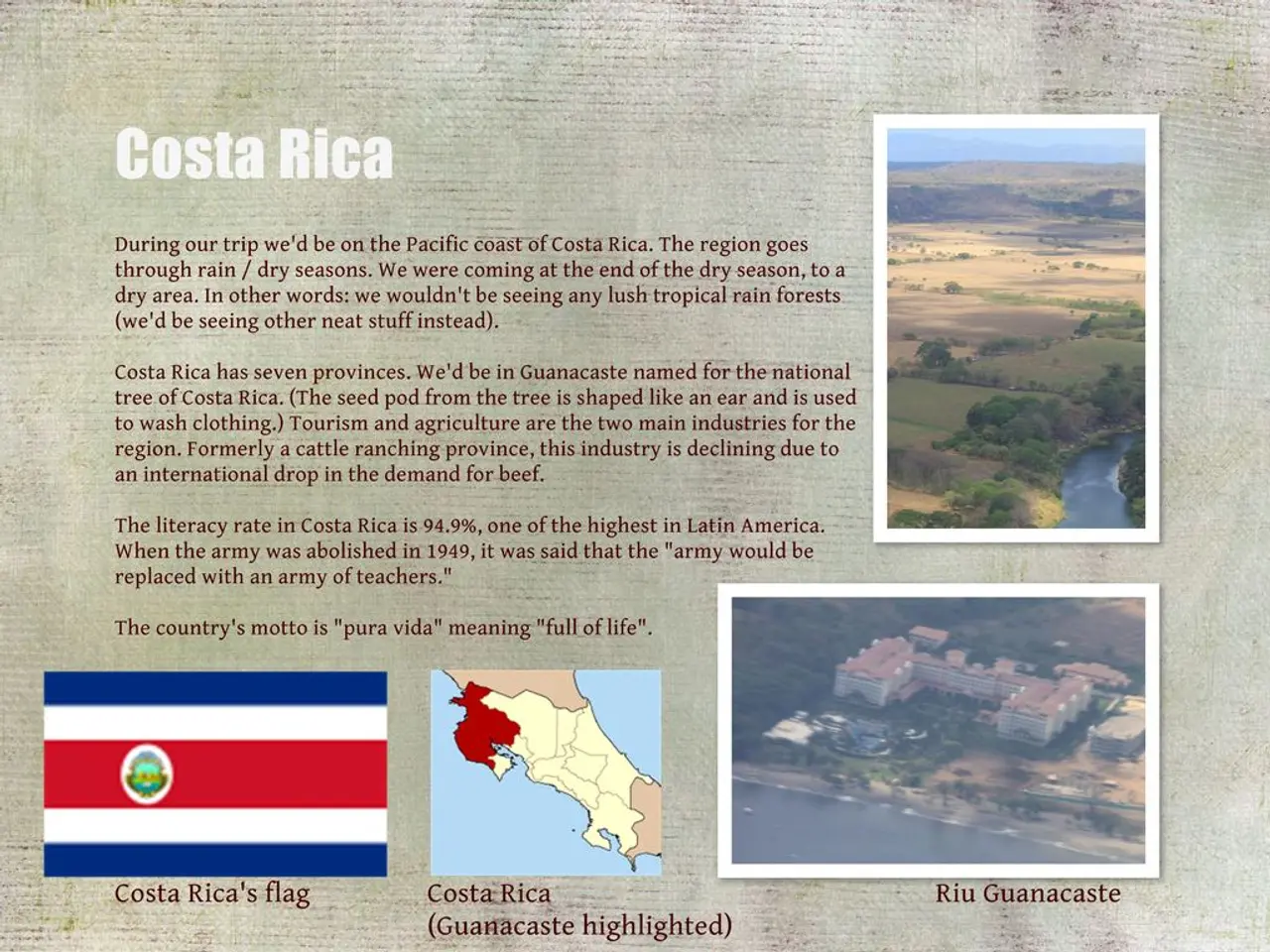Million seedlings to combat climate crisis
The "Resilient Caribbean Communities" project, a regional initiative, aims to enhance the resilience of Caribbean communities, ecosystems, and livelihoods against the impacts of climate change and natural disasters [1]. The project employs participatory, ecosystem-based approaches to adaptation, focusing on building capacities at community and organizational levels, integrating climate change and disaster risk considerations into planning and policy, and improving governance mechanisms for local access to climate and disaster finance [1].
One of the key strategies of the project is ecosystem-based adaptation (EbA), which leverages natural ecosystems to reduce vulnerability and enhance adaptive capacity [1]. This includes climate-proofing local green-blue enterprises and livelihoods that depend on natural resources, preserving essential ecosystem services for resilience. The project also supports research and knowledge sharing, mainstreaming ecosystem considerations into participatory governance and policy development, and using ecosystem and community-based approaches for climate adaptation, disaster risk management, and mitigation [1].
The project is making a significant impact in various Caribbean countries. In the Dominican Republic, 3,500 hectares of rainforest will be created through a combination of reforestation and regeneration [1]. Similarly, Haiti will see 1,200 hectares of forest reforested, and an additional 510 hectares will be created on the Cuban island [1]. These efforts are not limited to forest restoration; degraded areas will also undergo rehabilitation.
The project also addresses the critical issue of food security by combining erosion control with agricultural practices. It promotes the introduction of adapted plant species, ensuring a sustainable food supply in the face of climate change [1].
In addition to environmental benefits, the project aims to improve the drinking water supply and strengthen civil society and community-based organizations through workshops and trainings [1]. By the end of the project in 2027, more than 1,000,000 seedlings of various tree species will be planted [1].
The "Resilient Caribbean Communities" project is funded by the German Federal Ministry for the Environment, Nature Conservation and Nuclear Safety. It is a crucial step towards aligning Caribbean countries with regional and global frameworks, including the CARICOM Regional Framework for Achieving Development Resilient to Climate Change, the Paris Agreement, and the Sustainable Development Goals [1].
Small island states like Haiti, Cuba, and the Dominican Republic are particularly vulnerable to the consequences of climate change. Natural disasters such as droughts, floods, and forest fires, both a consequence of the climate crisis and accelerating it, cause devastating economic and ecological damage, especially in rural areas and for small farming families [1]. The project introduces fire protection groups as part of its measures to mitigate these disasters.
The project underscores the importance of preserving Earth's green lungs, with the forests of the Caribbean joining the Amazon rainforest in the battle against deforestation. The project's partner organizations in Haiti, the Dominican Republic, and Cuba are Concert-Action, Centro para la Educación y Acción Ecológica - Naturaleza, Enda Dominicana, BIOECO, and UPSA respectively [1].
In conclusion, the "Resilient Caribbean Communities" project is a significant stride towards strengthening climate resilience by centering ecosystem-based and participatory methods that empower communities, protect natural systems, and integrate local knowledge, policies, and financing to adapt sustainably to environmental changes.
- Leveraging science and environmental-science, the project aims to integrate ecosystem considerations into participatory governance and policy development, promoting the use of ecosystem-based approaches for climate adaptation, disaster risk management, and mitigation.
- To ensure food security in the face of climate change, the project promotes the introduction of adapted plant species and combines erosion control with agricultural practices, thus climate-proofing local livelihoods that depend on natural resources.
- Recognizing the importance of wealth management and finance in addressing climate change, the project supports the mainstreaming of ecosystem considerations into regional and global frameworks, including securing access to climate and disaster finance for local communities.




